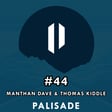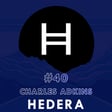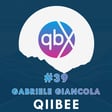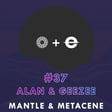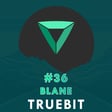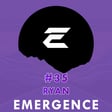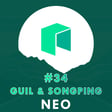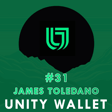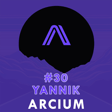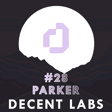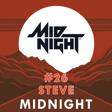
#4 - POT: The Cryptocurrency Podcast - Token Gating, Loopress and Loopring with Stephen
Looppress is a WordPress plugin that provides content creators to "token gate" content on their website. The driving philosophy behind Looppress is rooted in providing accessibility and ownership over one’s content.
As an open-source token gating solution, Looppress can lock a certain piece of information (such as a page, a login screen, or a piece of text) and only make it available to owners of a specific NFT.
Applications like Pinata have already recognized a need in the market for Token Gate content, so they have created paid solutions to address this need. Looppress however, is completely free to use and comes with a variety of useful features.
Looppress offers a user-friendly interface and a straightforward setup process, making it easy for creators to enter the world of web3 without a steep learning curve.
Looppress also emphasizes self-hosting, allowing creators to have control over their content and how it’s distributed. Unlike centralized platforms, Looppress operates on WordPress. This means you have full ownership of your content, and it can’t be censored or deplatformed.
Why Loopring?
Looppress currently works with Loopring NFTs and there is good reason for that. Loopring is an Ethereum Layer 2 scaling solution that enhances the functionality and scalability of Ethereum while maintaining its security.
By leveraging Loopring, Looppress minimizes these costs, making it more accessible to content creators and their audiences.
Oh and did I mention that Loopring’s API is completely free to use? That’s right. If you want to create an application that interacts with the Ethereum chain, you’re going to have to use the Etherscan API, which isn’t really free, so therefore not so scalable. Loopring on the other hand, allows you to interact with on-chain data completely free of charge.
Loopring offers Ethereum-level security, ensuring that your content and transactions are safeguarded. This level of security is vital in the decentralized web3 space, where trust is established through code and cryptography.
Looppress Features
Looppress offers a range of features that empower content creators and artists.
- Token Gating: Creators can tokenize their content and grant access to specific content or features in exchange for tokens, enabling a monetization model that doesn’t rely on ads or subscriptions.
- Web3 Login: Users can log in with their web3 wallets, enhancing privacy and simplifying the login process.
- NFT Role Access: Looppress supports access to NFT roles, enabling creators to offer exclusive content to NFT holders on different tier levels.
- Access-Protected File Downloads: Content creators can protect file downloads behind token gates, ensuring that only those who own the required tokens can access them.
- Visual Block Editor Blocks: Stephen plans to introduce a user-friendly interface for token gating, making it accessible to creators with no coding experience.
This podcast is fueled by Aesir, an Algorithmic cryptocurrency Trading Platform that I helped develop over the last 2 years that offers a unique set of features.
